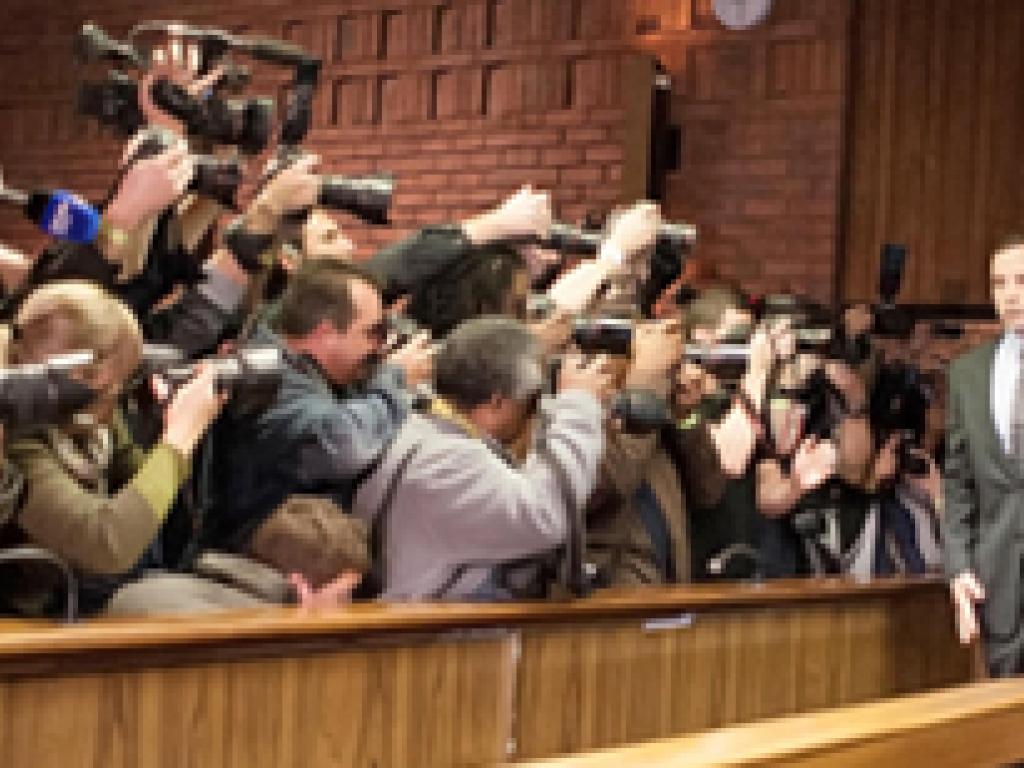Oscar Pistorius Case

Fair hearing: UCT senior law lecturer Kelly Phelps is the legal analyst for CNN's coverage on the Oscar Pistorius trial.
When the Oscar Pistorius murder trial begins in the North Gauteng High Court on 3 March, once again it will be UCT senior law lecturer Kelly Phelps who will guide CNN's global audiences through the intricacies and idiosyncrasies of the South African criminal justice system.
The story has all the ingredients of a blockbuster: the hero who defied a double amputation to run in the Olympics; the cover girl with a law degree who loved cars and cooking. Then add to the mix love, tragedy, and the law.
When Oscar Pistorius takes the stand, having pleaded not guilty to the premeditated murder of girlfriend Reeva Steenkamp at his home on 14 February last year, there were few more intent on studying the unfolding evidence than Kelly Phelps.
Contracted by CNN to provide in-depth legal analysis on the high-profile case, the UCT graduate and former assistant editor of theSouth African Journal of Criminal Justice says her job was to ensure nothing was 'lost in translation'.
Pistorius was an international hero; his inspirational story of grit and determination, some say, mirrored the journey of the nation whose emblems he wore at the Paralympics and Olympics. His fall from grace headlined around the world.
After his arrest, speculation and rumour (was it premeditated murder, or a mistake?) ignited like a bushfire, fed by what Phelps describes as "generally shoddy journalism". As a result, fact and "sober information" haven't filtered into the public discourse.
"All too often, the media have taken the cheap, easy angle."
But backtrack to February 2013. Phelps' first interview on the Pistorius case was on self-defence and the law, for local breakfast TV show Expresso.
A CNN central booker saw the YouTube clip, and made a call.
Phelps was just what they were looking for: a legal expert immersed in the local landscape, someone who could explain to CNN's largely American audience, raised on the jury system of justice, the complexities of South African criminal law - and who could shape the legitimacy of CNN's content.
Local expert
Phelps' pedigree is impressive. With an MA in law from Cambridge, she helped develop UCT's postgraduate programme, Criminology, Law and Society. Her undergraduate teaching incorporates criminal law, and criminal justice and the Constitution. At postgraduate level, she teaches punishment and human rights to LLM and MPhil students, and has taught the criminal process to criminology honours students.
As the trial arraignment followed the lengthy bail hearing, Phelps became a familiar face to CNN audiences, painstakingly unpicking events against the fabric of the South African criminal justice system, both on-screen for CNN and as an advisor behind the scenes.
Much of this was done on the run - by phone and Skype interviews, and in on-camera interviews outside the courts.
But for the bigger shows, hosted by Anderson Cooper and Piers Morgan, she was filmed at a Cape Town studio. She also participated in a documentary on the case - Murder or Mistake, an Anderson Cooper special feature - which aired on 7 June 2013.
Countering misinformation
On one Anderson Cooper show, Phelps was able to counter the views of American lawyers Jeffrey Toobin and Mark Geragos, who were completely dismissive of Pistorius' claim that he was afraid of crime, which he said precipitated the shooting.
"I had the opportunity to explain how the prevalence of crime can infiltrate into the psyche, and hasinfiltrated into the South African psyche; and that in South Africa, an allegation like that wouldn't necessarily raise a red flag.
"That's when you see the fundamental importance of having a local voice."
Phelps has also been able to spell out to CNN's American audiences why this high-profile case is unlikely to go to plea bargaining, as extensively used in the US judicial system.
This kind of knowledge dissemination is central to her social responsiveness portfolio.
"I see this as an amazing opportunity to counter the biased and negative portrayals of South Africa with more measured accounts that take social and cultural contexts into account - and being based at UCT gives me the perfect opportunity to do that."
Massive trial preparation
Assisted by a researcher, Phelps has prepared "hugely" for the next phase. A blue 'Pistorius file' with yellow tags contains all her research: stats, trial lengths, crime rates, detection and conviction rates, and themed information.
"I imagined what an international audience might be interested in hearing. I picked apart the charge sheet and indictment to analyse what aspects of South African law are likely to be contested, or particularly pertinent, and created summary sheets for myself, so that I can give accurate information on the spot."
It's time well spent, because the work feeds back into her research and teaching.
"The reason I've put so much time into compiling this research is that disseminating accurate information is the only valid role an academic has in participating in a media circus such as this one."
Public opinion remains a challenge.
"When people form strong opinions before the trial, whatever plays out in court will be analysed and judged through that lens. If Pistorius is found not guilty of premeditated murder, people will come out believing that a huge miscarriage of justice has occurred.
"That can have a far-reaching and invidious effect on people's respect for the courts - and their adherence to the law. Apartheid is a clear example of that: as it started losing its legitimacy, people stopped believing in the state, and in the precepts on which it was built."
Story by Helen Swingler. Image by Raymond Botha.